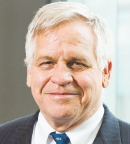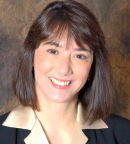The American Society of Clinical Oncology (ASCO) held its first scientific Annual Meeting on April 9, 1965, in the Bellevue Stratford Hotel in Philadelphia. More than 70 members and invited guests attended the inaugural event, which featured three presentations on leukemia and multiple myeloma. The Society had been conceived 1 year earlier, on April 9, 1964, when seven physicians convened for an organizational meeting—the first of four to take place that year—and lunch at the Edgewater Beach Hotel in Chicago. Their purpose was to discuss the formation of a medical organization that focused on the clinical care of cancer and gave physicians treating patients with cancer a forum to share ideas and information. Those seven founding physicians were Jane Cooke Wright, MD, Arnoldus Goudsmit, MD, Fred J. Ansfield, MD, Harry F. Bisel, MD, Herman H. Freckman, MD, Robert W. Talley, MD, and William Wilson, MD.
From Little Seeds Grow Mighty Trees
More than 32,000 physicians, researchers, health professionals, and guests attended the 2018 ASCO Annual Meeting, June 1 to June 4, in Chicago, representing ASCO’s nearly 45,000 members from the United States and abroad, and including specialists from all oncology disciplines and subspecialties. More than 2,500 abstracts were accepted for presentation on site at the Annual Meeting, and an additional 3,350 abstracts were accepted for online publication. This year’s theme, “Delivering Discoveries: Expanding the Reach of Precision Medicine,” was crafted by 2017–2018 ASCO President Bruce E. Johnson, MD, FASCO, who told The ASCO Post that “My own experience as a thoracic oncologist came to mind when working with ASCO staff to generate the theme because we need to make certain that all patients benefit from precision medicine, not just those treated at academic medical centers.”

Bruce E. Johnson, MD, FASCO
Further, Dr. Johnson said, “At my own institution we have seen our precision medicine diagnostic capabilities grow from testing a single gene to now testing more than 400 cancer-related genes. We have also seen advances in targeted therapies, which have led to better outcomes for patients. We need to ensure that oncologists in all practice settings receive the guidance they need regarding which tumors require further characterization, including genomic testing, the selection of appropriate diagnostic tests, and the interpretation of the test.”
Cultivating A Strong Future
ASCO’s 55th President was inaugurated during the Annual Meeting in Chicago. Monica M. Bertagnolli, MD, FASCO, has been an active ASCO member since 1995, serving on the ASCO Board of Directors, the Cancer Prevention Committee, and the Strategic Planning Committee. Dr. Bertagnolli is Chief of the Division of Surgical Oncology at Dana-Farber/Brigham and Women’s Cancer Center and Professor of Surgery at Harvard Medical School in Boston.

Monica M. Bertagnolli, MD, FASCO
In an interview with The ASCO Post, Dr. Bertagnolli discussed some of the specific initiatives she hopes to launch during her presidential tenure and her long-term goals focusing on issues such as cost of cancer care, access to care, and prevention, and increasing the Society’s global impact. “ASCO has a voice that is more than 45,000 members strong. We must continue to be actively involved in advocacy, because public policy at both the state and national levels has a profound impact on our ability to care for patients. “My belief,” she continued, “is we can harness the talent of ASCO members and the courage of the patients we serve to create an equitable, learning cancer care system that can achieve the best possible care for all, not just in 2018, but in every successive year as advances in cancer accelerate.”
For the complete interviews, see The ASCO Post, May 25 issue or visit ASCOPost.com. ■

